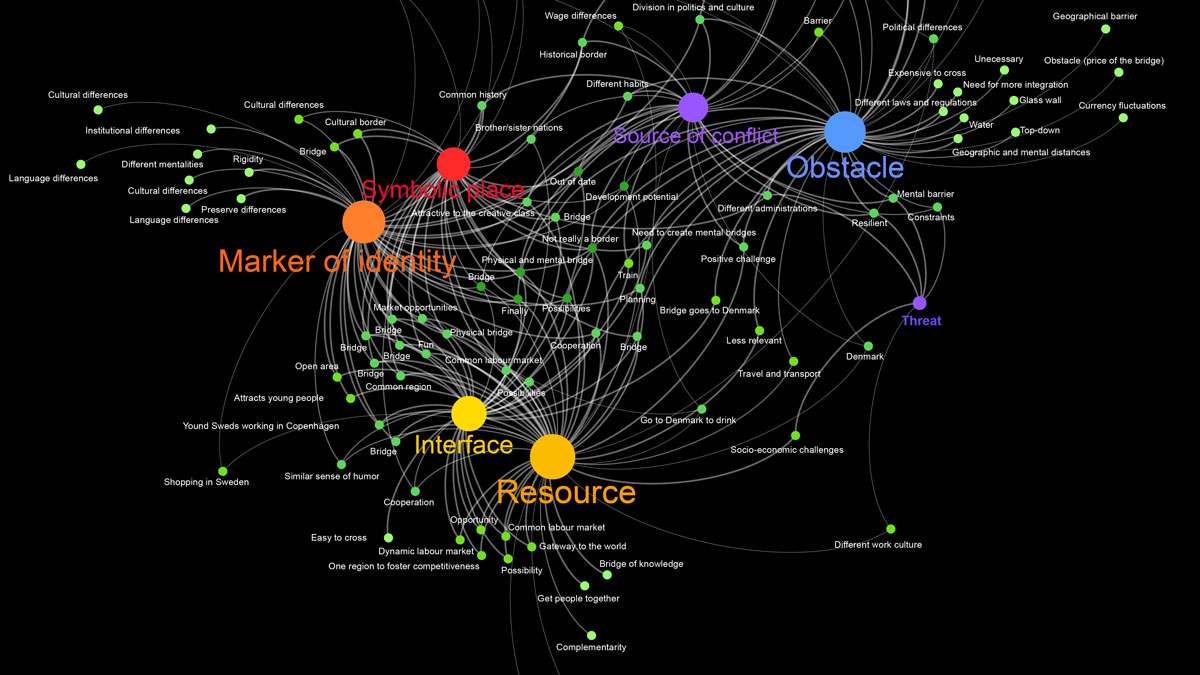By Christophe Sohn, Department of Urban development and Mobility, Luxembourg Institute of Socio-Economic Research, May 2015
Abstract
Various critical and scholarly works have underlined the multiplicity of borders, or the idea that borders mean different things to different people. This paper discusses the potential of the concept of assemblage for better understanding the ontological multidimensionality intrinsic to borders. An assemblage is understood to be a heterogeneous and open-ended grouping of elements that do not form a coherent whole that helps explain how different meanings emanating from various actors may interact and endure in a contingent and provisional way. It can be argued that such a topological approach may be well suited to unravel the uneven power relations that are both constitutive of a given border and mediated by it and to highlight the overall significance of a border’s identity beyond its diversity and on-going transformation.
Biography
Christophe Sohn (Ph.D. in urban geography, University of Strasbourg) is Senior Researcher and Head of the Department of Urban Development and Mobility at the Luxembourg Institute of Socio-Economic Research (LISER). He is also Assistant Professor associated with the University of Luxembourg. His areas of expertize are European cross-border metropolitan regions, border cities, cross-border integration, policy networks, urban governance, and the notion of borders as resource. Sohn’s most recent edited book is entitled “Luxembourg, an emerging cross-border metropolitan region” (P.I.E. Peter Lang, 2012). He has published works in journals such as European Planning Studies, Environment and Planning C, European Urban and Regional Studies, Geopolitics, Global Society, International Journal of Urban and Regional Research, Journal of Borderlands Studies. Dr Sohn has been the principal investigator of various research projects focusing on European cross-border metropolitan regions (e.g. Basel, Copenhagen-Malmo, Geneva, Luxembourg, Vienna-Bratislava) and he is currently working within the framework of the EUBORDERSCAPES project (FP7) on borders’ multiplicity mobilizing assemblage theory.
Christophe Sohn est diplômé en géographie de l’Université de Strasbourg. Depuis 2005, il est chercheur au Luxembourg Institute of Socio-Economic Research (LISER). Il est également Professeur-Assistant associé à l’Université du Luxembourg. Depuis 2012, il est responsable du département Développement Urbain et Mobilité. Ses domaines d’expertises concernent les villes et les régions frontalières européennes, la coopération transfrontalière, la notion de frontière comme ressource et la théorie sociale appliquée aux frontières. Christophe Sohn a publié des articles sur ces sujets dans diverses revues scientifiques internationales. Son dernier ouvrage est intitulé «Luxembourg, une région métropolitaine transfrontalière émergente» (PIE Peter Lang, 2012). Christophe Sohn a également été le coordinateur de plusieurs projets de recherche portant la coopération transfrontalière entre le Luxembourg et la Grande Région ainsi que dans d’autres régions transfrontalières européennes (par exemple Bâle, Copenhague-Malmö, Genève, Luxembourg, Vienne-Bratislava). Actuellement, ses travaux, menés dans le cadre d’un projet européen sur le changement de signification des frontières (EUBORDERSCAPES), portent sur la multiplicité des frontières vue à travers la théorie de l’agencement.
